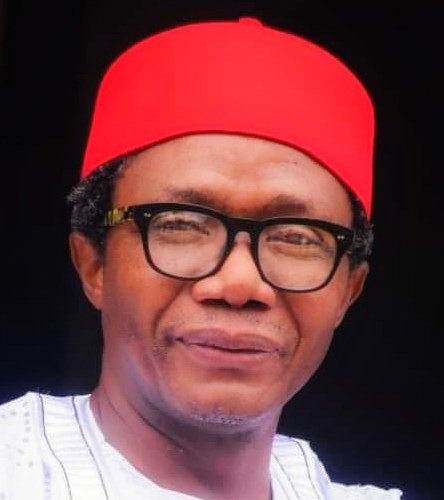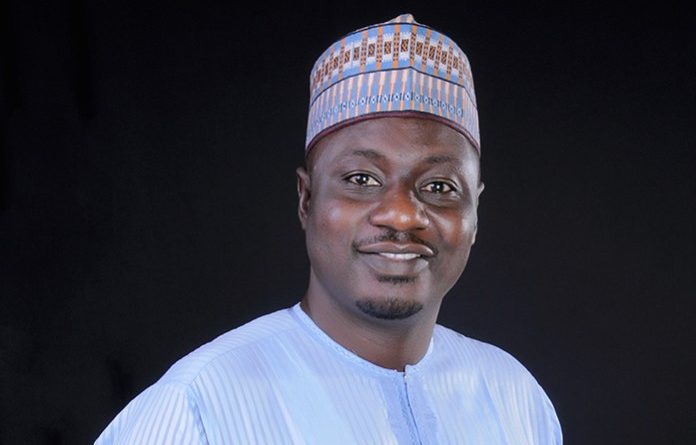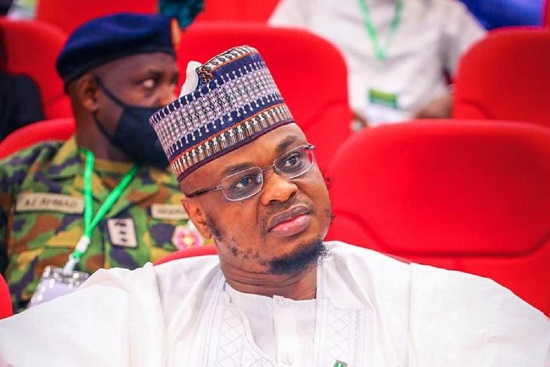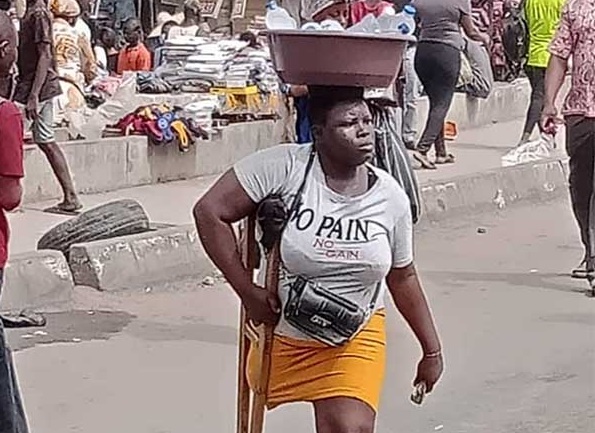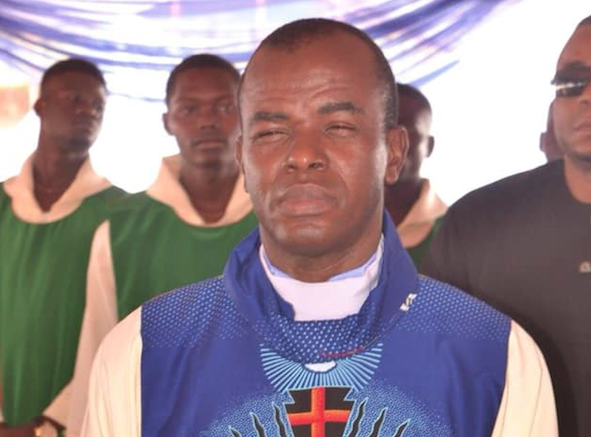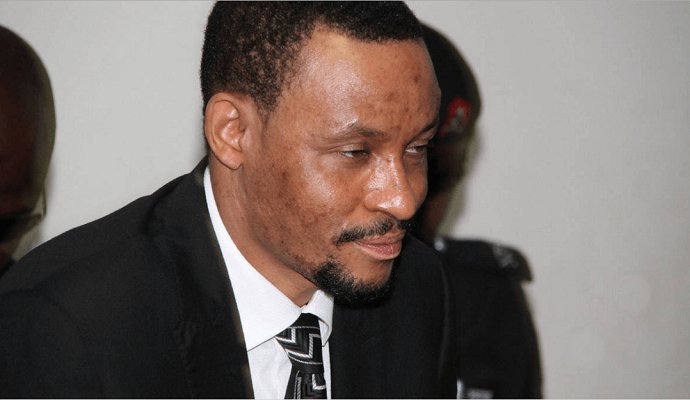May I begin by thanking the organizers of this crucial national forum, which aims to continue the search for a common ground and understanding of the great need for having an Igbo man or woman as Nigeria’s President in 2023. A certain philosopher by name, Victor Hugo once said that you can stop every other thing, but you cannot stop an idea whose time has come.
I also wish to commend PAN NIGERIA PRESIDENCY OF IGBO EXTRACTION COALITION (PANPIEC) for being one of the major organizations in the forefront of this epic struggle to inaugurate an Igbo as the Nigerian President to succeed His Excellency President Muhammadu Buhari in 2023. Your consistency and surefootedness have helped in no small measure in providing both leadership and direction for this make-or-mar struggle.
I share this passion and have been in the trenches for its realization since 2011, when I edited and published the book Rotation of the Nigerian Presidency and the Igbo Possibility written by Professor Udenta O. Udenta. I also contributed some chapters to the book titled: Ndigbo, the Presidents and Nigeria Power Game…Restructuring Nigeria Peacefully, authored by my friend and brother Dr. Godwin Udibe. I have further co-authored two separate books with Dr. Udibe on the need for the Nigerian President of Igbo Extraction. The first of our two books is The Audacity of Power…Exclusion of the south East from Nigeria’s power Game and the Spectre of Biafra as presented in 2017 and the most recent is this small book, Project Nigerian President of South East Extraction…the Philosophical and fundamental principles of the Unity and Equity Quest.
I have also written dozens of articles on the subject matter, featured on national Radios and Televisions on same. I therefore suspect that these may be some of the credentials that convinced the search party to hazard that I could anchor the keynote for this delicate and crucial national dialogue. I will try to address the subject matter under reference and acquit myself as creditably as possible, God being my helper through this fairly familiar but rough terrain.
Advertisement
Generally, I see Nigeria as a great work in progress, with so much already attained and much more yet to be attained. And as one interested in leadership, I am a merchant of hope and incurable optimist in believing that the Nigeria project is necessary and possible despite our faltering steps and the present growing insecurity encircling our nation and many avoidable deaths happening all over the country ( A minute silence in honour of these fallen citizens).
I believe that nations are not organic or natural but conscious creations of men on purpose as Nigeria was created by the colonial government of Britain some hundred years ago. You are aware that the journey of Nigeria to nationhood began in earnest in 1914, following the amalgamation of North and South Protectorates by Lord Fredrick Lugard on behalf of Her Majesty the Queen of England.
Business of the day
Advertisement
It is rather disheartening that over 60 years of independence, Nigeria is still grappling with the task of unity and nationhood. We must deal with these tasks now so that our children do not meet aNigeria like this present one. The great thinker, Frantz Fanon, told those yearning for change but sitting on the fence: “Each generation must, out of relative obscurity, discover its mission, fulfill it, or betray it.”
Since the exit of Britain from Nigeria at independence in 1960, so to speak, the onus of keeping the country united and in progressive mode fell on the nation’s founding fathers and subsequently on the successive political leaders. In discharging this onerous task, Nigerian political leaders, military governments inclusive, have employed several containment policies to ensure the stability and unity of the nation. This is, as Nigerians often say, to carry everybody along.
Some of these containment policies are: Federal Character, Equality of States in the elections to the Nigerian Senate and Rotation of Power. The first two are enshrined in the Constitution while Rotation is yet to attain constitutional status as recommended by the 2014 National Conference. These are policies cleverly conceived to address the inherent imbalances in the Nigerian polity.
Hence, the 1979 Constitution states “the composition of the government of the Federation or any of its agencies and the conduct of its affairs shall be carried out in such a manner to reflect the federal character of Nigeria and the need to promote national unity, and also to command national loyalty, thereby ensuring that there shall be no predominance of persons from few states or from a few ethnic or other sectional groups in that government or any of its agencies” (Section 14 (3) of the 1999 Constitution).
Advertisement
Without federal character principle, alienation in Nigeria would have been intolerable due to our winner-takes-all mentality. However, Federal Character Principle has been largely observed in breach. For many years the Federal Character Commission has operated without a Board. With the Board inaugurated days ago, we hope the Commission will restore the lost glory of the principle which once gave every section of Nigeria hope and feeling of being carried along.
The moment the balance and rebalance in the national polity is lacking, the polity begins to stray dangerously in one direction. Balancing therefore helps it not to drop so much on one side or on another side to the detriment of the rest, and create an obtuse system that cannot but alienate and under-develop. So, there’s a strong sense in the agitation for the sustenance of the consensus brought by Rotation of Power in order to preserve the sanctity and stability of the Nigerian State.
The economic prosperity and education of the South and the relative size of the North with its alluring potentials have always called for balancing in a compensatory manner and that need is what yielded the quest for Rotation of Power in the current democratic dispensation.
Instructively, zoning within rotation was written into the PDP party’s Constitution in 2009. Article 7(2c) of the PDP constitution states that: ‘In pursuance of the principle of equity, justice and fairness, the party shall adhere to the policy of rotation and zoning of party and public elective offices, and it shall be enforced by the appropriate executive committee at all levels.’ Further amendments of the PDP Constitution never tampered with this express provision for rotation and zoning in the party.
Advertisement
With the 2023 Presidential Election looming large in the horizons, the quest for rotation of presidential power is predictably receiving a renewed impetus. There is no doubt that Ndigbo are really ready more than ever before to take up the mantle of leadership of the country in order to contribute their quota to nationhood and national development and more importantly, have a sense of belonging to the nation called Nigeria.
The Nigeria-Biafra Civil war dealt a devastating blow on the nation’s unity and drive for development. The first military coup led by Major Chukwuma Kaduna Nzeogwu, which had a preponderance of Igbo officers in planning and execution, unfortunately and inadvertently recorded lopsided killings to create the sour impression that Ndigbo were after enthroning hegemony. This unfounded allegation, though has largely been debunked, Ndigbo have gravely borne the brunt and suffered greatly as a result.
Advertisement
Two successive pogroms resulted from it where estimated 100,000 Easterners predominantly Igbos were killed essentially in the North. The Civil war capped the revenge killings and was brutally prosecuted and left over 2m more dead in the end. But the question is: for how long shall the nation brood over the unfortunate mishaps of the first military coup and the aftermath of the civil war?
The feeling of the ill civil war has lingered since the hostilities ended over 50 years ago, and Ndigbo have been excluded from sensitive positions, including the office of the President Federal Republic of Nigeria and blockaded from directly accessing the outside world by land, air and sea. It is time to put the civil war behind and move forward as one country. Let it be known that the feeling of alienation felt by Ndigbo is a major drawback on the Nigerian project.
Advertisement
Rotation of Presidential Power
It is indeed true that it is the political parties that nominate candidates for elections under the 1999 Constitution. But practice has shown that critical power stakeholders play a dominant role since the inception of the current democratic dispensation and are expected to play more of the role in helping the political parties come to terms with the necessity of Rotation of Power.
Advertisement
When the principle of compensation is placed at the epicenter of the Rotation of Power, what it does is to dismantle the ability of political parties alone to produce occupiers of political offices. It then becomes an elite necessity and not just elite construct of power within their domain, because the conversation is widened. It balances society in such a way that stability, national security and inclusivity are preserved.
For this reason, the Obasanjo Presidency in 1999 was not just a pure production of the PDP. It was an elite consensus that the power shift had to go to the Southwest for compensation of Abiola’s annulled election and death, which caused NADECO to raise hell that could have consumed Nigeria.
The very fact that Obasanjo was a product of elite consensus made his emergence some sort of national compensation, to solve an unsettled national political dilemma.
The Obasanjo Presidency and the Yemi Osinbajo Vice-Presidency and the Dr. Goodluck Jonathan Presidency, must be understood not in the PDP-APC Power dialectics but in the broad sense of the specific means and ways that National Elites have at every point in time tried to include the others outside the mainstream. Thus sections who are angry, sad, disillusioned are brought into these central quarters of powers.
For its compelling benefits, every well-meaning citizen has to join hands and accept the basics that power is shifting not just to the South but shifting to the Southeast as a zone for the production of Nigeria’s President of South East extraction and the business is not for the South East elites alone but for the entire nation.
The South East is also not unaware that it can push that power shift to the zone, but cannot impose a candidate on the rest of the country and that where the critical power stakeholders hold sway. What is the norm in the Nigerian experience is that when Rotation of Power is placed within the powers of the political party, the concourse of elites will weigh in to help determine not only the zone that produces the President but also who becomes the President of the country from the zone so favoured.
It is therefore not only the political parties that should weigh in in this rotation of power business, but all critical power stakeholders. They range from natural regional organizations, clerical organizations, retired military establishment, professional bodies and so forth.
In 1999, the North yielded power but controlled the process of the production of the Presidential outcome. The North has to do the same again. So, today, the South East, aiming to produce the President for the rest of the country, must all sit at a table to balance the discourse in the direction that satisfies the compensatory yearning of the zone without jeopardizing any part of the country yielding up the space to the zone.
The South East leaders must therefore be up and about, building bridges and negotiating as history beckons at this auspicious moment.
From the 2014 Nigeria National Conference recommended amendment of the constitution of the federal Republic of Nigeria to provide for; The principle of zoning and rotation of elective offices at the Federal and state levels on the basis of excellence, equity, gender, justice and fairness.
The office of the President to rotate between the North and South and amongst the six(6) geopolitical zones. The Confab went further to recommend the adoption of the Nigerian charter for National Reconciliation and integration, saying it should be the basis of our union as a Nation and a guarantee of our National existence.
So much can be revealed by dispassionate examination of contemporary arguments and counter-arguments about zoning and power rotation, and the overall implications of these principles for the consolidation of democracy in Nigeria. Because geopolitical zone structures roughly approximate ethno-national groups, they play a central aggregating role in Nigeria’s body politic. However, arguments about zoning and power rotation tend to undermine the geopolitical system and bolster the nation’s North/South division.
The Nigerian presidential elections are often driven by logics of ethnicity, geopolitical zones, and geographic dichotomization which are often employed as justifications for claiming the presidency. Post-election riots and Nigeria’s general lack of security are rooted in, and dictated by, the logic of this struggle for power. Delimiting the country in terms of North and South rather than geopolitical zones, depersonalizes and undermines ethno-national identities, which are important building blocks for the Nigerian Federation. It may also result in the creation of structural flaws that will drive and sustain political tension within the polity and pose a serious challenge to the consolidation of Nigeria’s democratization.
All things considered, the benefits of zoning far outstrip leaving it to a free-for-all in our heavily monetized, ethnicized and religion-driven electoral process. It is therefore the hope of the conveners that the national conversation would engender national unity, and social amity in the polity by adopting ways and means of achieving equity of which rotation is key, given our peculiar circumstance.
In order words, the clearest pathway to the nation’s unity is equity achievable through fair implementation of federal character and by extending it to the office of the President of the country through rotation. And because the office of the President of Nigeria is indivisible and can only be occupied by one person, the only logical way the principle of federal character can apply to it is by rotating it.
The Governor of Kaduna State, His Excellency Mallam Nasir El Rufai once said and I quote: “The Northern APC will have to sit down and endorse someone, most likely someone from the South, because after eight years of Buhari, I don’t think the Presidency should remain in the north unless there is some extenuating circumstances. But all things being equal, we will honour our agreement and we keep our words.’’ That is the patriot’s spirit of equity and fairness.
Generals Yakubu Gowon and IB Babangida have also in not-too distant interviews lent their support for the emergence of Nigeria President of Igbo extraction.
Speaking to the BBC then His Excellency Dr. Gowon said and I quote again: “If doing so (making the Igbo President of Nigeria) will bring peace, it should be done…There was a time the PDP started rotational presidency, if that was continued maybe the Igbo would have produced a President but that didn’t happen. If that can be done now, I don’t have a problem with it…”
Merit versus Zoning/Rotation
Bishop (Father) Matthew Hassan Kukah once said: “Nigeria is like catholic marriage. You may not be happy in it but it doesn’t break.” I am not sure he would still say the same thing today. The argument that Zoning and Rotation sacrifice merit and competence is not quite correct for each zone in the country has very competent and eminently qualified citizens. The challenge will be to fish for only the competent ones from the part of the country producing the President. One man one vote in an obtuse and grossly lopsided country is not the same as merit where it comes to election.
Yes, Nigeria ought to have come of age when merit should govern our national life. This is quite a fair postulation if merit can be applied in every aspect of our national life. But the principle of Federal Character gives the right of first refusal to components of the country as an inevitable way of rebalancing the inherent imbalances in the nation’s polity. The office of the President cannot be an exception and since federal character is what should be, given its indivisible nature, only rotation can apply to it.
For related good reasons, the Federal Character and Quota System still override overall merit in most official considerations in Nigeria as ways of carrying every part of the country along. This is a point missed by those who argue against zoning and rotation of presidential power.
Right from the foundation of Nigeria the political and structural imbalances of the country have been at issue and have caused much crisis and continually arrest the nation’s development. Before independence, Nigeria operated three regions, two in the South and one in the North. Nigeria added one more region in 1963 – Mid-Western Region – still in the South. The four regions operated up till the civil war when the then head of state Yakubu Gowon abolished the 4 regions and created 12 States in their place. Major General Johnson Thomas Umunnakwe Aguiyi-Ironsi created no states. General Olusegun Obasanjo who succeeded Murtala Mohammed who also created states, did not create any State also.
Generals Ibrahim Badamasi Babangida and Sani Abacha also created States as Heads of State of Nigeria, bringing the number of States in Nigeria to 36 plus the Federal Capital Territory, which is also given the status of a State where it comes to presidential election, making it 20 in the North and 17 States in the South. This skews the country and gives the North an overarching advantage when it comes to determining who the President of Nigeria becomes.
These amorphously and unfairly created States and Local governments form the basis of determining which part of the country produces the President of Nigeria. Going by the provisions of the 1999 Constitution, it stipulates that the winner of the nation’s presidential election shall score 25% of the votes in 2/3rd of the States of the federation and a simple majority of the votes. This makes it almost certain that the North is always in a position to determine who emerges the President of Nigeria at any time.
Yes, democracy is about majority but where the primordial sentiments and skewed structures pervading the nation are irrational, other measures must come to play to stabilize the polity and as said before, Nigerian voters do not consider candidates on merit but on religion, ethnicity, and region and so forth. There is nothing democratic about that pattern of voting and where it is rife. And where one side of the country dominates the rest based on such factors, rotation becomes inevitable.
Studies show only about 10% of Africans are citizens, the remaining 90% are either tribesmen or idiots.
When the Greek used the word idiot, they didn’t use it as a curse word. Idiots are the people who just don’t care, if they write an exam, they’d cheat, if they’re in government, they’d steal. An idiot just doesn’t care at all. If he eats bananas, he throws the peels anywhere instead of putting it in a trash bin.
According to the Greek, some societies have more idiots than tribesmen and citizens. The next set of people are tribesmen, these are the set of people that look at everything from the point of view of their tribe. These are people who believe in you only if you’re part of their tribe. It can really be terrible to have a tribesman as a leader, he would alienate the rest.
To the Greeks, it’s not just about ethnicity, they also consider religion as a tribe. A great deal of Africans are tribes men because they view everyone from the point of view of their tribes. They trust only their tribesmen.
The last group of people is citizens. These people like to do things the right way, they will respect traffic light rules even if no one is watching them, and they drive within the speed limit. They respect laws, in an exam, they won’t cheat, if they’re in government, they won’t steal. They are compassionate people, they give to others to promote their wellbeing.
Recall that Hillary Clinton won the popular votes but Donald J. Trump is President based on electoral votes. One may as well argue that the US approach is undemocratic. Yet, it has kept the country peaceful and progressive. Zoning of presidential position in Nigeria is akin to the US introduction of Electoral Votes, which supersedes popular votes where necessary or in conflict.
Unfortunately, Dr. Goodluck Jonathan subverted zoning in the 2019 election circle and dearly paid for it as the action inspired the formation of the All Progressives Congress (APC), the behemoth coalition that swept him away from power. That most classic example of the crisis was caused by an attempt by an incumbent to go for another term when the power ought to move to another zone in Nigeria. The personal ambition of President Goodluck Jonathan (as he then was) at the expense of an agreed consensus arrangement that he expends the residue of Yar’Adua’s tenure and should do one term only brought the nation to a precipice.
That decision to set aside rotation and zoning gave oxygen to the formation of the first successful coalition to stop Dr. Goodluck Jonathan i.e. the All Progressives Congress (APC). It formed the basis for the legacy political parties, namely: Congress for Progressive Change (CPC), Action Congress of Nigeria (ACN), All Nigerian Peoples Party (ANPP) and a faction of the PDP to rally Nigerians.
The political leaders and critical power stakeholders rallied round APC because it was a just resistance of an action to thwart a beautiful measure aimed at giving the nation political stability and progress. The APC which fought that just cause and the PDP which zoned president to the North in 2019 as recommended by the Ike Ekweremadu post-2015 Election Review Committee, must both avoid a repeat of the ugly history.
Merit without Rotation of Power is inoperable and inappropriate in Nigeria because it will permanently consign power to one side of the country due to the already reviewed imbalances. Moderating factors have to be given their due premiums to give the Nigerian nation state a lease of life.
Rotation does not mean that merit is scarified in Nigeria. Many who have ruled Nigeria were blighted by the nation’s skewed structures, which they lacked the political will to confront, not lack of merit.
There is none who has ruled Nigeria that was not competent enough. But each either lacked the guts to set the skewed structures of Nigeria aright or they maintained the status quo for the little, passing gains enjoyed by their regions.
Those who argue otherwise argue amiss. The real deciding factors for who rules Nigeria have merit inherent in them. Factors like National visibility, acceptability, Integrity and Political courage. Judging by the Nigerian experience, merit can be found in the person being known and acceptable to a broad spectrum of national power stakeholders, influencers and to the generality of Nigerians.
The broad spectrum of national power stakeholders will always look for a deserving citizen. To this group who decide who rules Nigeria, merit is not just an educational qualification. It means much more.
Rotation will give the nation the opportunity to keep in check the struggle for power by the regions, which ruined the First Republic and make it to be less rancorous. It will give the nation the chance to focus on development since the area where the next president will come from is predictable.
Rotation of presidential power became inevitable by the factors that have made Restructuring Nigeria inevitable. These are the centrifugal forces tearing the nation apart that need to be leashed. All the measures that can help keep Nigeria one, progressive and peaceful is, by all means, democratic. Democracy is agreement and consensus, and there is nothing more consensus than rotation, given the nation’s peculiarity.
Though himself did nothing about Restructuring in the 8 years of his Presidency, Chief Dr. Olusegun Obasanjo, GCFR, former head of State and former President of Nigeria recently re-echoed the urgency of Restructuring when he said: “When I was elected President the agitation was true federalism but now it is restructuring. If we don’t address it they may go from restructuring to self-determination and this will be a serious problem. If Boko Haram can get external support, any group that decided to go will get support from within and outside. So we must address the issue now.”
Like Rotation of Power is the weaker version of Restructuring. It is also important to note that devolution of powers, restructuring and rotation of power all flow in the same sense of progression of building a just society.
Restructuring is a way of balancing and rebalancing of power. Devolution of power is yielding from the center to the federating unit in such a way that it becomes more viable. Rotation of power is circulating power in such a way that everyone has a flow of power. They all flow from that mindset, trying to find the best aggregate that will produce a stable outcome and polity. .
Sacrifices of Ndigbo to Keep Nigeria One
When Northern Nigeria sought to secede from Nigeria in 1953, it was Dr. Nnamdi Azikiwe that led the campaign to keep that Region in the Nigerian federation, counseling then: “There is no sense in the North breaking away or the East or the West breaking away; it would be better if all the regions would address themselves to the task of crystallizing common nationality, irrespective of the extraneous influences at work. What history has joined together let no man put asunder”.
It is that recognition of the need to have this balance where the country was structurally unbalanced, that led Zik to cede the Prime Minister position to NPC’s Tafawa Balewa and became ceremonial president of Nigeria instead. The same Zik described by the New York Times as one who “towered over the affairs of Africa’s most populous nation, attaining the rare status of a truly national hero who came to be admired across the regional and ethnic lines dividing his country.”
Parliamentary elections were held in Nigeria on 12 December 1959. The result was a victory for the Northern People’s Congress, which won 134 of the 312 seats in the House of Representatives, despite the Action Group winning more votes (Nohlen, D, Krennerich, M & Thibaut, B (1999) in the book, Elections in Africa: A data handbook, p70). It formed a coalition with five other parties and two independents, holding a total of 148 seats. Voter turnout was 79.5%.(Source: Elections in Nigeria African Elections Database).
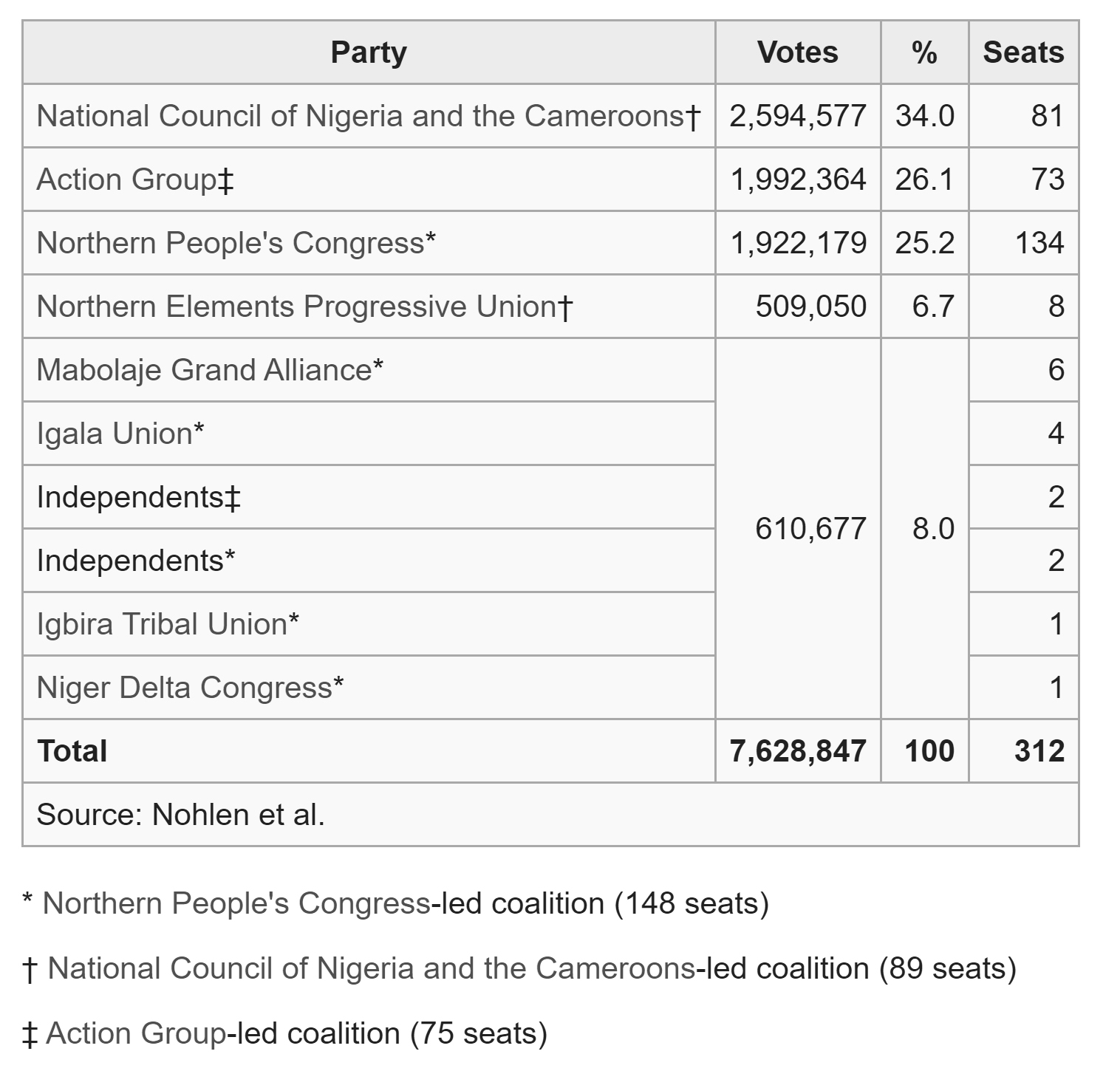
Zik chose a junior partner’s role by going into alliance with Northern Peoples Congress and became a ceremonial president of Nigeria forfeiting the Prime minister position which he would have become if he had gone into a coalition with Action group instead. Zik thus became the only African leader who led his country’s independence but did not become its head of government afterward.
In 1979, Zik’s Nigeria Peoples Party (NPP) still went into an alliance with Nigerian Party of Nigeria (NPN). This led to the emergence of Chief Edwin Umezeoke as the Speaker of the House of Representatives in the 2nd Republic.
Biafra Agitation and Nigeria’s President of Igbo Extraction
It is heartwarming that the quest for a Nigerian President of Igbo extraction, is gaining traction across regional, ethnic, religious and political divides. The show of good faith by prominent politicians, elder statesmen, and ordinary Nigerians alike, rekindles the hope that a greater and more equitable Nigeria is feasible in our lifetime.
In January this year, elder statesman and political veteran, Alhaji see Tanko Yakasai, said: “Nigeria had three major blocks. Two of these three, namely, the North and the West have had the opportunity of producing the President. Therefore, Igbos have a good argument because out of the three siblings, two have already succeeded at producing the President, but the Igbos have not. I for one – I am in support of it. I did it before in the era of NPN (National Party of Nigeria) when we had the arrangement that the next president after late President Shehu Shagari would come from the East. We would have settled this problem long ago if not for the military intervention”.
The elder statesman, however, warned against the Biafra agitation and polemics of a faction of the Indigenous People of Biafra (IPOB), which he said was not helping the Igbo course.
He said: “I want to say that our compatriots from the South East should wake up and realise that Nnamdi Kanu will not be the type of people, who will take the presidency to the South East.” He reasoned that Ndigbo must appeal to, not insult their sensibilities, to have their trust.
At the National Dialogue organized by ILDF in March, former Minister of the FCT, Engr. Mohammed Abba Gana did not only call for sustenance of rotation of presidential power but to also make it a constitutional matter. Most other attendees spoke in the same vein to make it one of the key recommendations of the communiqué subsequently issued.
Unfortunately, not many have been as quite mature and responsible like Pa Yakasai in putting their concerns across. They are so illogical and insensitive in aggressively pushing the narrative that Ndigbo cannot be asking for the presidency and Biafra at the same time. Some even say Ndigbo would break up Nigeria if elected President. This is as untrue as it is emotionally blackmailing. Ndigbo have shown more than enough good faith in Nigeria by inhabiting and helping develop every part of Nigeria.
So, it is a gross misrepresentation of the thinking of the Ndigbo. While Biafra agitation disciples might be more vociferous in marketing their narrative, they do not represent the true stand of the greater number of Ndigbo and Igbo intelligentsia, which is captured in the “Awka Declaration” in May 2018.
Presenting a 10-point demand of Ndigbo, Soludo explained that the positions presented for adoption were distilled from accumulated years of work on the subject by successive regimes of Ohanaeze Ndigbo, submissions of the Igbo Leaders of Thought for the 2014 National Conference, 1994 constitutional conference and 2005 and 2014 national conferences, report of the committee set up by Southeast governors on the review of the 1999 Constitution as well as the submissions/works of various Igbo groups/think-tanks
In preferring restructuring to secession, the 10-point Awka Declaration reads in part: “The position of Ndigbo is to seek a transformed Nigeria that works for every Nigerian citizen, a level playing field for all Nigerians to enjoy freedom, liberty, fairness, equity and justice to maximize their fullest potential. Ndi Igbo are uniquely positioned, by virtue of their huge stake in Nigeria, to join hands with every willing party to champion a pan-Nigeria agenda. We do not seek any preferential or differential treatment from Nigeria.
“Ndigbo want a Nigeria that works to maximize their security, prosperity, and happiness. Igbo also want a Nigeria that allows every part of Nigeria the latitude and opportunity to develop at their own pace. We want a national conversation to create a new and better Nigeria for all Nigerians.”
It is equally recalled that Igbo political, traditional and socio-cultural leadership met at Nike Lake Resort Hotel, Enugu, on July 1, 2017 at the height of the IPOB agitation that left the region tense. In a seven-point communiqué read by Governor Dave Umahi, they stated that “Ndigbo are in support of a united Nigeria where peace, love, fairness, justice, equity and equality of opportunity are paramount, regardless of creed, ethnicity, gender or political affiliation”.
Indeed, it is for their support for a united but restructured Nigeria over secession and separatism that have made the Igbo political leaders the targets of physical assaults, threats, lies, and propaganda by IPOB and their brainwashed disciples.
Equally, before his death, Dim Emeka Odumegwu Ojukwu, did not leave anyone in doubt about his stand on the future of Ndigbo in Nigeria. Delivering the 2nd “The Sunday Newspaper” (TSM) Diamond Lecture in Lagos on February 22, 1994, Ikemba said: “I do not deny the fact of secession in 1967 – this is a historical fact. What I deny is that the Igbo community to which I belong has been planning for secession. Secession is not like cocaine – it is not addictive. Today I have more reasons to seek a better Nigeria”. Biafra agitators, though have legitimate grievance, cannot be more catholic than the pope, more Igbo than 99% other Igbos who want restructured Nigeria. Just like Boko Haram terrorism does not define the North or obstructed the election of President Muhammadu Buhari. Neither did OPC and nefarious activities stop Obasanjo from becoming President or Niger Militancy stopping Jonathan.
In fact, in my considered estimation, Biafra agitation is , in the main, a struggle for inclusion, not secession and will fizzle out once Nigeria is restructured and true federalism restored as agreed upon with colonial Britain just before Nigeria’s independence.
Besides, the people bent on secession would not be investing their lives in other parts of the country as Ndigbo have continued to do. The Bible in Matthew 6:21 says that “where a man’s treasure is, there also lies his heart”. No part of Nigeria rivals Ndigbo in the number of their people or the quantum of their investments outside their ancestral lands. It is only the Igbo man that goes to any village in Nigeria and develops it like his home. It is not for nothing that Nigerians now say, “If you go to any place in Nigeria and don’t find an Igbo man, run for your life. That place is inhabitable!”
The pro-Biafra agitations have been the loudest under President Buhari because of his leadership style, which is excluding Ndigbo and asphyxiating their legitimate aspirations. After all, Kanu was a nobody before Buhari’s advent, which lionised him through unnecessary incarceration, trial and discriminatory policies against Ndigbo. To make the matter worse, the Federal Government proscribed the unarmed organisation as a terrorist group while saying nothing about the armed herdsmen and bandits now ravaging the country.
The Niger Delta region where militants blew up pipelines and engaged in economic sabotage to press home their quest for resource control produced Jonathan. The activities and antecedents of Odua Peoples Congress (OPC) are well-known, yet the South West has produced Olusegun Obasanjo and Yemi Osinbajo. OPC leader, Gani Adams, is now the Are-ona-Kakanfo (Generalissimo) of Yoruba land. So, why is IPOB being used to profile the entire South East or measure their qualification to lead the country? It is unfair and unkind.
What Ndigbo want is a restructured Nigeria, not Biafra. However, let me warn also: do not try a referendum in Nigeria before restructuring. The result may surprise the optimists, meaning that the subject of Restructuring must be treated with the urgency it deserves.
Agitations have been part and parcel of Nigeria’s national life. Biafra agitation should therefore not be seen as an exception for any reason. All parts of Nigeria have sought at one point or the other to secede…East, West, South South, and North.
In contemporary times, renewed agitations for secession are also rife all across the country again. It is not an exclusive activity of Biafra activists who are in absolute minority in the South East. For instance, what Boko Haram has been doing is an attempt to establish an Islamic caliphate in the North East. What is more of secession than that?
It is therefore embarrassing that some mischief makers are now narrating to the world that the Igbo position on the state of the nation is now sovereign Biafra.
Let it also be known that even IPOB never consulted anybody before arriving at their separatist position. However, they are a legitimate Igbo group and have the right to agitate for better life for their members and their Igbo ethnic group as long as they do it within the laws of the land and devoid of armed struggle, which Ndigbo will never support. But IPOB does not represent Ndigbo as an ethnic group. Their position cannot therefore logically be the Igbo position.
Let me also state that Biafra agitation groups are up to 30 and some of them believe in Restructured Nigeria. For the avoidance doubt, Ralph Uwazuruike who started the second wave of Biafra struggle even when Ojukwu was still around by forming the Movement for the Actualisation of the Sovereign State of Biafra (MASSOB) is also talking of Restructured Nigeria as better than breakup of the union. In other words, even within the Biafra agitation groups, there is no consensus on the quest for a sovereign Biafra as nonnegotiable.
What appears to be the consensus is that Biafra becomes inevitable if Nigeria cannot be restructured into an all-inclusive, workable federation, as a nation that works for everybody, not for a section or a group of conspiratorial elites.
We have also heard the loose talk that Ndigbo cannot go for President of Nigeria since they have decided to pursue Restructuring. This is yet another mischief sired and mired in illogicality. To begin with, Restructuring is not an exclusive South East agenda. It is an agenda the zone co-founded and shared with South South, South West and the large sections.
Conclusion
My firm belief is that the election of Nigerian President of Igbo extraction is one symbolic gesture, which will enact national unity and engender genuine reconciliation. The rest of Nigeria has nothing to fear from Igbo Nigerian Presidency. It is a win-win for all Nigerians and has quite a lot to bring to the table. The average Igbo man or woman believes in equity and in the philosophy of live and let live.
To most Igbos, though the shooting battles of the Nigeria-Biafra civil war may have ended 50 years ago, the war is still going on in some other forms with both sides still unhappy with each other. Yes, you can win the battle and still lose the war. For Nigeria to win both the battles and war, Nigerians need to elect an Igbo as their President in 2023.
Let me assure us that Nigeria President is safest with the Igbo and therefore a win-win for all Nigerians, given the fact that the Igbos are in every nook and cranny of Nigeria, developing the places where they live and pursue their happiness. It is not therefore possible for the Igbo to offer a divisive presidency since he will be the biggest loser and is therefore duty-bound to protect all parts even for the sake of his investments.
Yet, the reality is that parts of the country appear scared of the Igbo man and want him isolated and excluded from the scheme of things, to the point that today’s Security Council has no Igbo man or woman in it, giving the impression that the war is not over.
Let us stop pretending as if all is well with our country. The North and the old South East (the erstwhile Biafrans) must genuinely forgive each other in order to put the civil war truly behind. The core North have not forgiven the Igbo man for the first military coup in which some of its leaders were killed. The unfortunate and highly condemnable act has been erroneously tagged an Igbo coup which it was not. For there is no history record anywhere that Igbo leaders sat down to hatch or inspire a military coup d’état. It was purely a military misadventure for which Ndigbo have suffered (and continue to suffer) gravely and unjustly.
Ndigbo on the other hand have not forgiven the North for the attendant pogroms and the civil war, which claimed millions.
Do not also forget, the two military officers who foiled that same coup were Igbos namely, Colonel Emeka Ojukwu and Major General JTU Ironsi even though Ironsi failed to try the coup plotters, which is yet another monumental mistake. Besides, Igbos enjoyed commanding heights in the nation’s government, economy and military then.
May I also end by also strongly recommending that this outreach and handshake does not have to end with the North. We also seriously need Handshake and Outreach with the South South, South West and the Middle Belt. The reason is that core North alone cannot make the Igbo President. Going by the nation’s 1999 Constitution as amended), 24 states are required to produce the Nigerian President. What this translates to is 4 to regions working together on it before it can become a reality.
These national conversations should continue until the rationale for this noble quest is understood and accepted, and equity and justice served in the spirit of federal character, which should equally apply to the office of the President of Nigeria by rotating it.
May the Almighty guide us to the truth, true brotherhood and genuine reconciliation. Yes, Nigeria’s President of Igbo extraction in the spirit inclusion, equity and social justice, is no most apt, a win-win. Nigerians should have nothing to fear from it.
Long live the Federal Republic of Nigeria.
Thank you for your kind attention.
Being a keynote by Dr Mefor, chancellor, Igbo Bu Igbo & Director Public Affairs, Igbo Leadership Development Foundation, at the national forum organised by Pan Nigeria Presidency of Igbo Extraction Coalition (PANPIEC) at Air Force base, Abuja, on April 29, 2021
Views expressed by contributors are strictly personal and not of TheCable.
Add a comment
